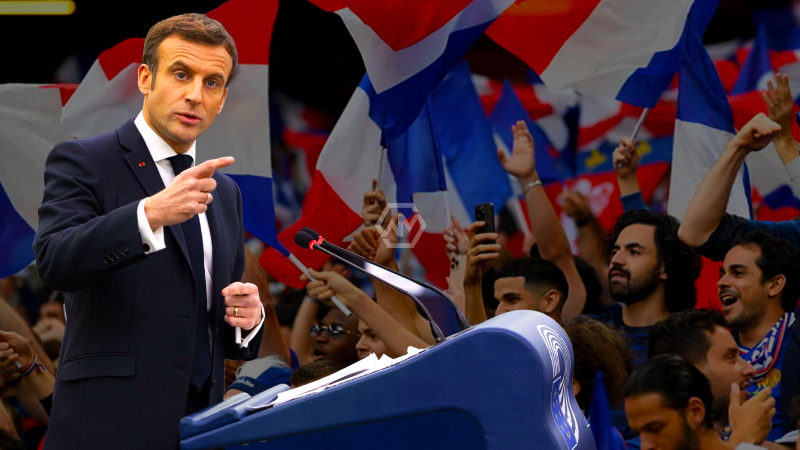- Macron emerged as a young, successful political newcomer in 2017.
- His presidency faced significant domestic opposition and political setbacks.
- Macron’s international influence contrasts with his weakened domestic position.
Emmanuel Macron, France’s youngest-ever president, initially garnered widespread attention and acclaim for his centrist platform and ambitious economic reforms. His early presidency was marked by significant efforts to modernize the French economy, including labor market flexibility and tax cuts for businesses.
However, these policies also sparked substantial opposition, epitomized by the “yellow vest” movement, which protested against social inequality and government policies perceived as favoring the wealthy.
Macron’s Rise and Fall: Navigating Political Turbulence
Despite his re-election in 2022, Macron’s political standing has weakened. His centrist alliance lost its parliamentary majority, forcing him to navigate a fragmented political landscape. The unpopularity of his pension reform plan further damaged his leadership, leading to widespread protests. Macron now faces significant challenges in implementing his agenda and avoiding becoming a lame-duck president as his second term progresses.
Domestically, these reforms were met with significant resistance. The “yellow vest” protests, which erupted in response to perceived social injustices, highlighted the growing discontent among ordinary French citizens. Despite falling unemployment rates and increased foreign investment, many viewed Macron as a president catering to the elite, further fueling public unrest.
Macron’s political challenges intensified following his re-election in 2022. Losing his parliamentary majority meant he had to contend with a more fragmented and confrontational National Assembly. His controversial plan to raise the retirement age from 62 to 64 sparked months of mass protests, further eroding his political capital and damaging his leadership credentials.
Internationally, Macron’s proactive diplomacy and advocacy for a stronger European Union have been notable. He has played a significant role in Western support for Ukraine and has pushed for robust EU defense and economic policies. However, his domestic political struggles may undermine his ability to maintain this international influence, particularly as France prepares to host the Paris Olympics.
Emmanuel Macron’s presidency, marked by ambitious reforms and significant opposition, now faces the challenge of navigating a fragmented political landscape and maintaining international influence amid domestic turbulence. His legacy will depend on his ability to stabilize his leadership and implement his vision for France and Europe.
“The strongest personality will be the new prime minister of Great Britain. And the weak personality will be the president of France.”
– Dominique Mosi



